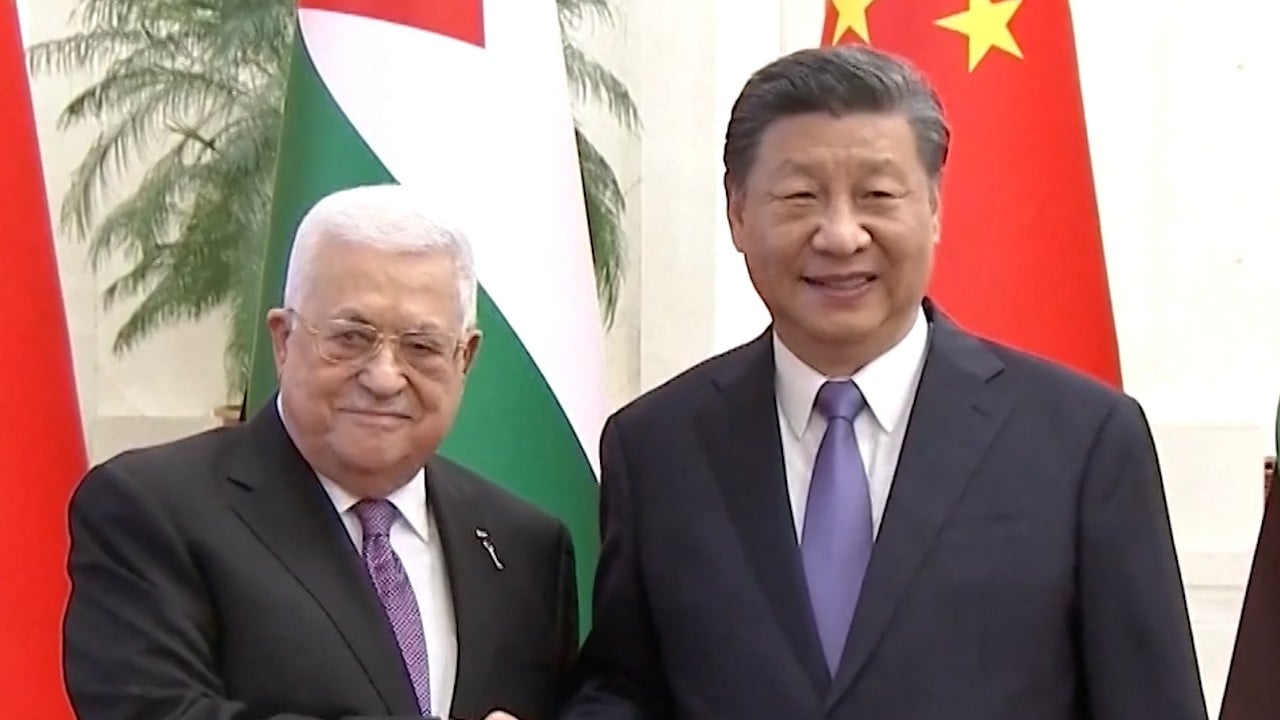
China’s soft power in the Middle East is growing, but it is unlikely to cut the Israel-Palestine Gordian knot
- China played only a small role in the Saudi-Iran talks and can hardly expect to reproduce that success with Israel, a staunch US ally
- Moreover, China lacks historical expertise in the region, cannot force Israel to the table and so can expect peace talks to take years to even mature
If Beijing manages to solve the complex conflict in the Middle East, it would show the world it can succeed where the US has failed. Ultimately, this could be a major boost towards China establishing itself as the regional hegemon.
For Israel, the Saudi-Iran peace deal is a major problem. Iran is a long-time security threat and its rapprochement with Saudi Arabia threatens Israel’s normalisation of relations with Riyadh – a key US strategic objective. China’s peacemaking has effectively obstructed this. With Iran no longer a threat, Saudi Arabia has lost the security incentive to ally with Israel.
There is no guarantee this could repeat itself with the Israel-Palestine issue. This is because the Israel-Palestine conflict is largely asymmetrical – Israel is the much stronger power with less to lose from maintaining the status quo.
China’s engagement here is also not of great value to Israel. Moreover, despite China’s large economic footprint in the region and potential for business, the US has invested over US$150 billion in Israel since its formation and has protected it from regional threats by helping it develop advanced defence capacities.
Why would China want to replace the US in the Middle East?
China also does not have the expertise that actors like the US – despite its preferential approach towards Israel – have accrued over the last half-century or so. In addition, China will have to invest significant time and money now to host the peace talks, which will take a few years at least to mature.
Lastly, China cannot force Israel to the table, given that its major foreign policy plank – and attraction to authoritarian governments in the Middle East – is its unwillingness to interfere in domestic affairs of any nation.
Against this backdrop, China’s willingness to step up can be explained by a few factors. Firstly, it is riding on the success of the Iran-Saudi deal. Secondly, it is presenting itself as a competitor to the US presence in the region, and here it seems to have succeeded, thus alarming US officials. Thirdly, it can tap into vast economic possibilities if it can show credibility even if the mediation fails.
Despite these factors, though, the likelihood of a successful Israel-Palestine negotiation is modest and it remains to be seen if China can achieve peace in the region. For now, it is more likely that China will secure small wins for Palestine in the conflict, rather than making any major headway.
Mohammed Sinan Siyech is a doctoral candidate at the Islamic and Middle East Studies Department at the University of Edinburgh and a non-resident associate fellow at the Observer Research Foundation, New Delhi
Nabeel Khan is a research writer for the Better Conflict Bulletin. He holds an MSc from the London School of Economics specialising in conflict, media and political communications



